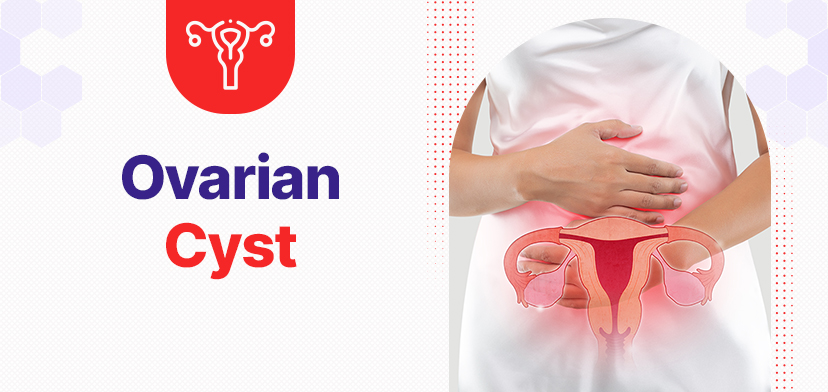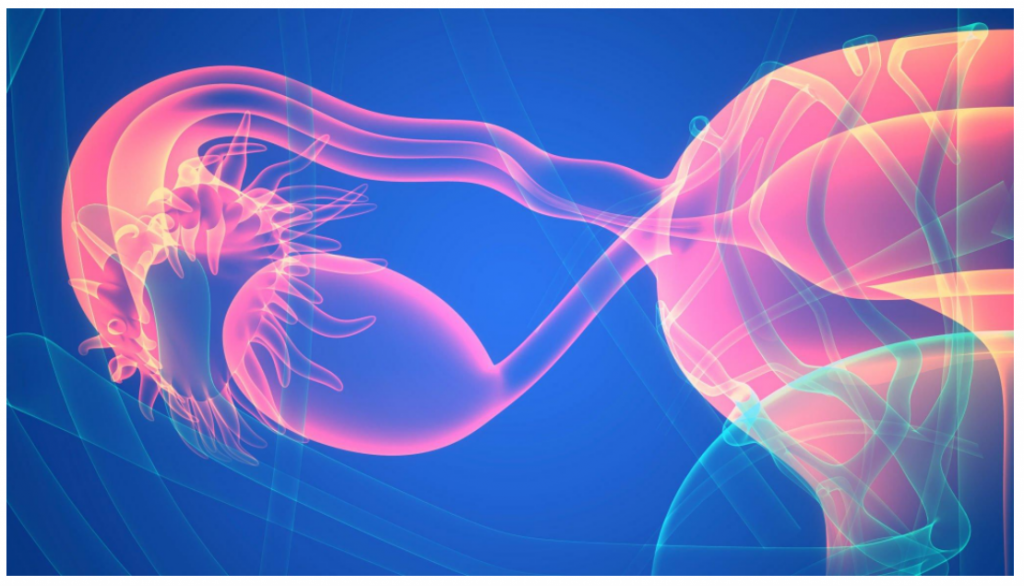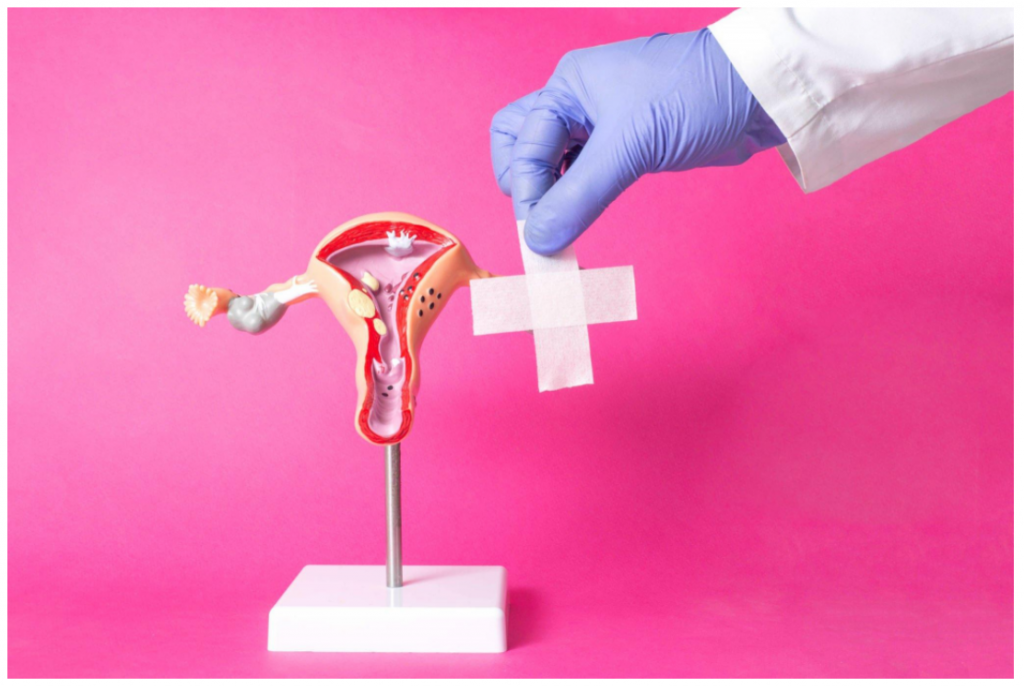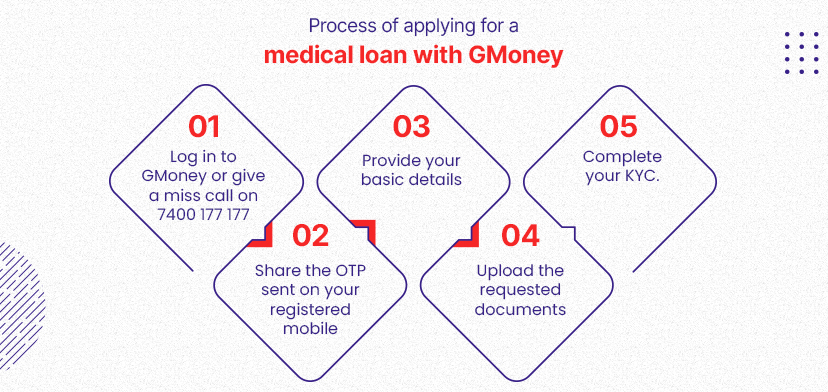Home » Ovarian Cyst: Diagnoses, Costs And Treatment In Gurgaon

When it comes to surgery, it’s normal to feel scared or lost. This is especially true when it comes to ovarian cysts. However, ovarian cyst removal surgery in Gurgaon can provide real comfort and hope if you receive the proper diagnosis and treatment.
So, what exactly is the process for ovarian cyst laparoscopic surgery? We’ll go over the full details here, from start to finish. We’ll cover what to expect, how to prepare for surgery, the cost of surgery in India, and the recovery process. This way, you’ll know exactly what to expect and can approach your surgery with confidence.
Our goal is to make this process as easy and painless as possible. You are not alone in this difficult time, and there are treatments available to help you. Get a diagnosis, seek expert help from the best gynaecologist for ovarian cysts in Gurgaon/Gurugram, and take the required actions to find relief.

Ovarian cysts are fluid-filled sacs that can form on or inside a woman’s ovaries. They usually develop during ovulation, when the egg is released from the follicle and the follicle collapses. However, some cysts can occur if the follicle doesn’t collapse or if the egg isn’t discharged. Ovarian cysts can be small or large, and they can cause symptoms like discomfort, bloating, and irregular periods.
Though ovarian cysts tend to resolve on their own, unresolved or untreated cysts may be painful and discomforting. The most frequent symptoms of ovarian cysts include
Other symptoms may include
In some situations, the cyst may rupture, causing severe pain. A cyst can become large and cause abdominal swelling in rare situations.
If you experience any of these symptoms, you should seek medical assistance immediately so your doctor can make an accurate diagnosis and provide adequate treatment.
Ovarian cysts can often be diagnosed through a physical exam, pregnancy test, blood testing, ultrasound, or laparoscopy.
Pregnancy test
You may have a corpus luteum cyst if the test results are positive.
Pelvic ultrasound
It is a non-invasive, painless technique that is used to determine the type of cyst a patient has and to recommend a treatment plan. Ultrasound can also be used to monitor the cyst’s size and search for changes in the cyst. It is an effective method for monitoring ovarian cysts and determining whether surgery is required.
Laparoscopy
It is a minimally invasive surgery used to examine the abdominal cavity. A small incision is made in the belly, and a laparoscope is inserted. This allows the doctor to inspect any cysts present. Depending on the size and nature of the cyst, the doctor may opt to remove it or leave it in place. If the decision is made to remove the cyst, it will be sent to a lab for further testing. The surrounding tissue will also be checked for any signs of cancer or other health problems. In some cases, the doctor may need to remove nearby lymph nodes or tissue to confirm that there are no malignant cells present.
Blood tests
Blood tests can be used to assess the presence of proteins known as cancer antigens in a patient’s blood. A cancer antigen 125 (CA 125) test or other related blood tests may be conducted if the cyst seems to be solid and the patient is at high risk of ovarian cancer. However, CA 125 levels can be increased in different forms of cancer and non-cancerous conditions, so they are not diagnostic on their own. A CT scan or an MRI may be required to confirm the diagnosis.
Treatment for ovarian cysts is determined by the type of cyst, size, and associated symptoms.

Here are some signs that you need to get ovarian cysts removed:
You should prepare for ovarian cyst surgery before having the procedure. This involves discussing the procedure’s dangers and advantages with your doctor and completing a comprehensive physical. You should also verify that they are physically fit for surgery and follow their doctor’s pre-operative tests and care recommendations.
It is also critical to plan for post-operative care, such as getting essential drugs, scheduling transportation, and creating a pleasant recovery space.
Finally, it is critical to discuss the expenses of ovarian cyst surgery in Gurgaon/Gurugram with your doctor and make plans to pay for the treatment ahead of time.
Ovarian cyst surgery is usually recommended for cysts that are larger in size or have a unique appearance. Surgery may also be necessary if cysts cause discomfort or other symptoms, or if the patient is at risk of developing ovarian cancer. Laparoscopic cystectomy and laparotomy are the two main types of ovarian cyst surgery.
Laparoscopy Cystectomy
Ovarian cyst laparoscopic surgery is a less invasive option that is less intrusive on the body than traditional open surgery. A laparoscope is inserted through a few small incisions in the abdomen in order to allow the surgeon to see inside during the surgery. This type of surgery is often used to remove cysts, tissue, or lymph nodes. Recovery time is often shorter than with open surgery, and scarring is minimal.
Laparotomy Cystectomy
Laparotomy cystectomy is a more intrusive form of surgery in which a single incision is made in the lower abdomen. This procedure is typically used when the cyst is large or when the doctor wants to remove adjacent lymph nodes or tissue to ensure that no malignant cells are present. Recovery time is longer than with laparoscopy, and scarring is possible. Following surgery, you must consult with your doctor to ensure that the cyst does not recur.
The amount of time it will take you to recover from ovarian cyst surgery will differ depending on the type and extent of the surgery. Usually, you will be advised to take it easy for a few days after the procedure and to avoid any strenuous activity or exercise until your doctor says it is safe to resume. If necessary, pain medication may be prescribed. It is important that you follow all of your doctor’s instructions carefully in order to recover successfully.
After surgery, it is important to change your diet and exercise routine. A healthy diet full of fruits and vegetables is key to a speedy recovery.
Your doctor may tell you to take regular walks or do other low-intensity activities, gradually increasing the intensity as you get stronger and more energetic. Although some discomfort may still be present for a while, it is essential to follow all of the doctor’s instructions to achieve the best possible outcome.
There are a few dangers that come along with ovarian cyst surgery, as with any other surgery. These include infection, internal bleeding, and organ damage. However, it is very important to be informed of these risks before the surgery so that you can be prepared. In some cases, the cyst may reappear even after surgery. Because of this, regular follow-up visits are required in order to monitor for recurrence.

The ovarian cyst surgery cost in Gurgaon/Gurugram can differ based on the treatment and the location of the surgery. A laparoscopic cystectomy, which is a more sophisticated and less invasive operation, is often more costly than a laparotomy. The average cost of a cystectomy in Gurugram/Gurgaon is Rs. 50,000 to Rs. 2,50,000.
City
Price Range (Min-Max)
Bangalore
Rs. 50000 – Rs. 1,00,000
Chandigarh
Rs. 65000 – 90,000
Chennai
Rs. 20,000 – 3,00,000
Hyderabad
Rs. 40,000 – 2,00,000
Indore
Rs. 65000 – 90000
Kolkata
Rs. 65000 – 1,00,000
Lucknow
Rs. 65000 – 90000
Mumbai
Rs. 20,000 – 2,50,000
Noida
Rs. 50,000 – 2,50,000
Patna
Rs. 65000 – 90000
Pune
Rs. 20,000 – 3,00,000
Costs associated with surgery such as medication, diagnostic testing, and post-operative follow-up appointments should be considered. Pre-operative testing or procedures may be requested by some doctors. It’s important to understand all potential costs of surgery before making a decision.
Looking to get ovarian cyst surgery but worried about how you’ll pay for it? GMoney offers a loan for ovarian cyst removal. With terms that are flexible and low-cost, it’s a great option for those who need to pay for their treatment. You can be confident that you’ll be able to get the best possible care when you use GMoney.

1. What is ovarian cyst surgery?
Ovarian cyst surgery is a technique that removes an ovarian cyst. The cyst may be benign or cancerous, and surgery may include the removal of the whole ovary or only the cyst. The surgery’s objective is to remove the cyst while preserving as much of the ovary as feasible.
2. What is the procedure for ovarian cyst surgery?
Laparoscopic ovarian cyst surgery normally includes creating tiny incisions in the belly and introducing a camera and tools through them. The cyst will then be located and removed by the surgeon. Larger cysts or cysts placed deep in the belly may necessitate open abdominal surgery in some cases.
3. What are the risks associated with ovarian cyst surgery?
Ovarian cyst surgery, like any other surgical operation, carries hazards. These include infection, bleeding, organ damage, and blood clots. Furthermore, if the cysts are not entirely eliminated, they can recur.
4. What may I expect following ovarian cyst surgery?
You may suffer pain and discomfort in your belly following ovarian cyst surgery. You may also feel nauseated and fatigued. Following your doctor’s recuperation recommendations is critical, which may include taking pain relievers and avoiding heavy activity.
5. What is the cost of ovarian cyst surgery in India?
The cost of ovarian cyst surgery varies according to your procedures, complexities, chosen hospital and other variables. In general, it can range from 40,000 to 70,000 dollars, depending on the intricacy of the treatment and other criteria.
6. How long does recovery from ovarian cyst surgery take?
The recovery period following ovarian cyst surgery might vary based on the operation and other circumstances. In general, most patients should anticipate resuming regular activities within a few weeks of their treatment.
7. How long is the no-cost EMI for ovarian cyst surgery at Gmoney?
GMoney provides a flexible repayment tenure, allowing customers to select a loan period ranging from three to eighteen months, dependent upon their paying capability.
8. What are the documents required to apply for no-cost EMI?
You need to upload the following documents online:
Ovarian cyst surgery is a very common operation with minimal risk of complications. However, it is still important to understand the risks and potential expenses involved with the surgery. GMoney is an excellent choice for individuals who need to pay for ovarian cyst surgery since it provides quick and easy loan approval with no-cost EMI. Ovarian cyst surgery may be a successful, hassle-free and safe operation if done correctly, and with the help of a medical EMI.
Disclaimer: THIS WEBSITE DOES NOT PROVIDE MEDICAL ADVICE.
Follow us
Reach us
Mumbai HO
GMoney Pvt. Ltd.
315, 215 Atrium,
Next to Courtyard by Marriott,,
A.K. Road, Andheri East,
Mumbai - 400093
Ph : +91 86570 00105, +91 72089 60444
Quick Links
Bengaluru
GMoney Technologies Pvt. Ltd.
Oyo Work Spaces, Umiya Emporium,
Opposite Forum Mall, Hosur Rd,
Koramangala, Bengaluru,
Karnataka 560029
Ph : +91 89717 34815
Delhi
GMoney Technologies Pvt. Ltd.
Berry Co Works, 1E/3,
Jhandewalan extension,
Next to jhandewalan metro station
gate no. 2 Barakhambha Road,
New Delhi, Delhi 110001
Ph : +91 97116 26832
Pune
GMoney Technologies Pvt. Ltd.
91 Spring Board, Sky Loft,
Creaticity Mall, Off, Airport Rd,
opposite Golf Course, Shastrinagar,
Yerawada, Pune,
Maharashtra 411006
Ph : +91 84250 28758
Chandigarh
GMoney Technologies Pvt. Ltd.
SCO no. 292,
First Floor, Sector 35D,
Chandigarh
Ph : +91 84279 82012
Jaipur
GMoney Pvt. Ltd.
CODESKK Civil Tower,121 122,
Pandit TN Mishra Marg,
Santhosh Nagar, Nirman Nagar,
Jaipur – 302019
Ahmedabad
GMoney Pvt. Ltd.
22nd Floor, B Block,
Westgate By True Value,
Nr. YMCA Club, SG Highway,
Ahmedabad – 380051
Hyderabad
GMoney Pvt. Ltd.
Dwaraka Pride,
Plot no. 4/1, Survey No. 64,
Huda Techno Enclave, Madhapur,
Hyderabad (Telangana) – 500081
Chennai
GMoney Pvt. Ltd.
DBS Business Center, 31A,
Cathedral Garden Rd, Badrikari, Tirumurthy Nagar, Nungambakkam, Chennai, Tamil
Nadu – 600 034
Mumbai HO
GMoney Pvt. Ltd.
315, 215 Atrium,
Next to Courtyard by Marriott,,
A.K. Road, Andheri East,
Mumbai - 400093
Ph : +91 86570 00105, +91 72089 60444
Bengaluru
GMoney Pvt. Ltd.
3rd floor, Ranka Junction,
AH45, Krishna Reddy Industrial Estate,
Dooravani Nagar,
Bengaluru Karnataka - 560016
Ph : +91 72089 60444
Pune
GMoney Pvt. Ltd.
91 Spring Board, Sky Loft,
Creaticity Mall, Airport Rd,
Opp. Golf Course, Shastrinagar,
Yerawada, Pune,
Maharashtra - 411006
Ph : +91 72089 60444
Delhi
GMoney Pvt. Ltd.
Berry Co Works, 1E/3,
Jhandewalan extension,
Gate no. 2 Barakhambha Road,
New Delhi, Delhi - 110001
Ph :
+91 72089 60444
Chandigarh
GMoney Pvt. Ltd.
SCO No. 292,
First Floor, Sector 35D,
Chandigarh - 160022
Ph : +91 72089 60444
Hyderabad
GMoney Pvt. Ltd.
Dwaraka Pride,
Plot no. 4/1, Survey No. 64,
Huda Techno Enclave, Madhapur,
Hyderabad (Telangana) - 500081
Jaipur
GMoney Pvt. Ltd.
CODESKK Civil Tower,121 122,
Pandit TN Mishra Marg,
Santhosh Nagar, Nirman Nagar,
Jaipur - 302019
Chennai
GMoney Pvt. Ltd.
DBS Business Center, 31A,
Cathedral Garden Rd, Badrikari,
Tirumurthy Nagar,Nungambakkam, Chennai,
Tamil
Nadu - 600 034
Pune | Mumbai | New Delhi | Kolkata | Chennai | Navi Mumbai| Bengaluru | Ahmedabad | Nagpur | Hyderabad | Jaipur | Lucknow | Bhopal | Bhubaneswar | Nashik | Indore | Ghaziabad | Kanpur | Amritsar | Vasai | Noida | Gurugram | Chandigarh | Ranchi | Cuttack | Thane | Kalyan | Jalandhar | Kolhapur | Visakhapatnam | Chakan| Greater Noida | Wagholi | Raipur | Panvel | Belgaum | Mohali | Bhiwandi | Talegaon | Coimbatore | Palghar | Mumbra | Sangli | Surat | Durgapur | Ludhiana | Kochi | Agra | Ahmednagar | Ajmer | Akola | Aurangabad | Baroda | Beed | Rewari | Patiala | Vellore | Ranjangaon | Nanded | Nellore | Panipat | Panjim | Madurai | Mysore | Mangalore | Korba | Mathura | Kalaburagi | Jalgaon | Kharar | Guwahati | Kollam | Jamshedpur | Gwalior | Saswad | Solapur | Varanasi | Salem | Sambalpur | Jodhpur | Hubli | Panchkula | Faridabad | Amravati | Ayodhya | Badlapur | Dehradun | Parbhani | Ujjain | Udaipur | Tiruchirappalli | Srinagar | Shimla | Secunderabad | Ratnagiri | Pandharpur | Ananthapuram | Buldhana | Hadapsar | Baramati | Chittoor | Darjeeling | Dhule | Fatehpur | Gandhinagar | Haridwar | Gorakhpur | Jhansi | Kanchipuram | Kartarpur | Kurukshetra | Pondicherry | Prayagraj | Bharuch | Bhusawal | Bathinda | Pathankot | Nandurbar | Niphad | Kolar | Ambala | Kota | Pendurthi | Jabalpur | Palwal | Bhilai | Bhiwani | Bilaspur | Patna | Rohtak | Phagwara | Malegaon | Vijayawada | Bikaner | Chiplun | Darbhanga | Roorkee | Bhor | Rajahmundry | Margao | Alwar | Dhanbad | Bulandshahr | Aluva | Mulshi | Davanagere | Kapurthala | Anantapur | Loni | Latur | Gondia | Chhindwara | Chandrapur | Dharmapuri-TN | Faridkot | Dharwad | Daund | Chaksu | Bareilly | Kakinada | Haldwani | Doddaballapur | Dindori-MH | Bagru | Kudus | Kozhikode | Gurdaspur | Bokaro | Berhampur | Batala | Barrackpore | Ramgarh | Meerut | Bassi | Dera Bassi | Howrah | Karjat Raigarh | Thiruvananthapuram | Bheemunipatnam | Ambegoan | Allahabad | Aligarh | Alappuzha | Tirupathi | Thoppumpady | Srikakulam | Siliguri | Rourkela | Mirzapur | Gadag | Bellary | Tumkur | Sonipat | Hoshangabad | Junnar | Jalna | Hisar | Karnal | Kottayam | Muzzafarnagar | Ramnagara | Thrissur | Bahadurgarh | Balasore | Baraut | Dhar | Ernakulam | Gadhinglaj | Chikodi | Vaniyambadi | Kamothe |